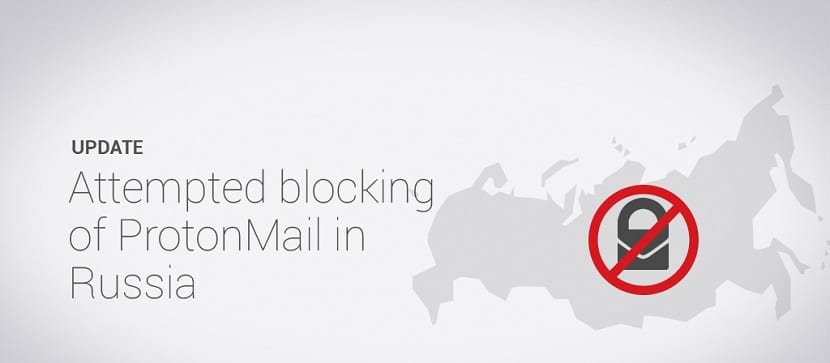
After the blockade of Telegram, now the government of Russia has asked to the main Russian telecom operators, MTS and Rostelecom, that impose a lock on the encrypted email provider ProtonMail.
This lock was ordered by the state federal security service, previously the KGB, which obtained and issued the judicial recourse after the agency accused the company and other suppliers.
What is the reason?
The email server has facilitated the spread of bomb threats, as several anonymous bomb threats were sent by email to the police in late January, forcing the evacuation of several schools and government buildings.
In total, it blocked 26 Internet addresses, including several servers used to encrypt users' end connection to Tor, an anonymity network known for circumventing censorship.
They have been asked internet service providers that implement blocking "immediately", using a technique called BGP Blackholing, which allows internet routers to simply remove internet traffic instead of routing it to its destination.
On the other hand, the CEO of ProtonMail, Andy Yen commented the following:
ProtonMail doesn't crash normally, it's actually a bit more subtle. They block access to ProtonMail mail servers.
So most other Russian mail servers, for example, can no longer send ProtonMail emails, but a Russian user has no problem accessing their inbox.
"Mass blocking of ProtonMail in a way that hurts all Russian citizens who want greater online security."
It added that its service offered greater security and encryption than its other messaging competitors in the country.
We have also implemented technical measures to ensure continuous service to our users in Russia and have made good progress in this area. If there is a legitimate legal complaint, we encourage the Russian government to reconsider its position and resolve the issues in accordance with international law and legal procedures.
Yen went on to point out that the lockdown coincided with protests against the government's efforts to restrict the Internet, which critics described as a "neutralization switch."

Russia, a country that is about to be isolated
Last year, the Russian parliament seized a law requiring Russian internet service providers to guarantee the independence of the Russian internet space (Runet), so that you can disconnect the country from the rest of the country.
As part of these important technical changes, Russian telecommunications companies must also establish "technical means" to divert all Internet traffic from Russia to exchange points approved or administered by Roskomnazor, the Russian telecommunications company.
It is the responsibility of this body, the charge of inspecting traffic to block prohibited content and ensure that traffic between Russian users remains within the country.
The second reading is scheduled for this month, after which, if passed, the bill will have to be signed by the Upper House of Parliament and then by President Vladimir Putin.
In December 2018, Senators Andrei Klishas and Lyudmila Bokova, as well as Deputy Andrei Lugovoi, introduced a bill to create protection measures for the Internet in Russia.
Russia, along with Iran and North Korea, is accused of hacker attacks and NATO countries have repeatedly announced that they are thinking of a stronger response to the cyberattacks that Russia is constantly accused of.
Last Sunday in Russia, thousands of people gathered in Moscow and 2 other cities to protest against the country's increasingly restrictive internet policy., which some say will inevitably lead to total censorship and isolate the country from the rest of the world.
For we are not far from what is happening in North Korea. These mass demonstrations in these cities were planned after the lower house of the Russian parliament endorsed a bill last month.